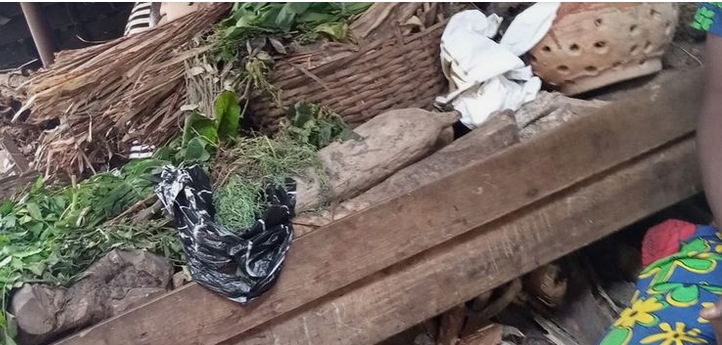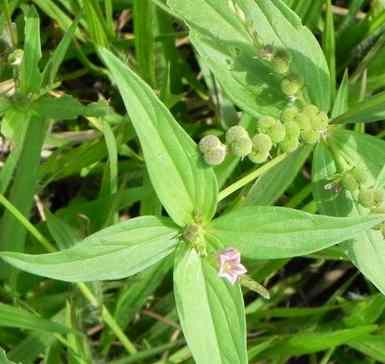
support@yorubalibrary.com
+2348073529208, 07038599574

Yoruba traditional healing practices are deeply rooted in the cultural and spiritual beliefs of the Yoruba people. These practices encompass a holistic approach to health, integrating physical, spiritual, and emotional well-being. This article explores the various elements of Yoruba traditional healing, including herbal medicine, spiritual healing, and the role of traditional healers.
The Foundations of Yoruba Traditional Healing
Yoruba traditional healing is based on the belief that health is a state of balance between the physical body, the spirit, and the environment. Illness is seen as a disruption of this balance, and healing involves restoring harmony through various methods.
Holistic Approach to Health
The Yoruba approach to health is holistic, considering the body, mind, and spirit as interconnected. This perspective emphasizes the importance of treating the root causes of illness rather than just the symptoms.
The Role of Ifá
Ifá is a central element in Yoruba traditional healing. It is a system of divination and spirituality that guides healing practices. Ifá priests, or Babalawos, are consulted to diagnose illnesses and prescribe treatments based on their deep knowledge of Yoruba cosmology and herbal medicine.
Herbal Medicine
Herbal medicine is a cornerstone of Yoruba traditional healing. The Yoruba have an extensive knowledge of plants and their medicinal properties, passed down through generations.
Commonly Used Herbs
Many herbs are used in Yoruba healing practices, each with specific properties and uses. Some commonly used herbs include:
• Ewuro (Bitter Leaf): Used to treat fever, malaria, and digestive issues.
• Alubosa Ayu (Garlic): Known for its antibacterial and antiviral properties.
Preparation and Administration
Herbs are prepared in various forms, such as decoctions, infusions, poultices, and ointments. The method of preparation and administration depends on the type of illness and the desired effect. Traditional healers meticulously prepare these remedies to ensure their efficacy.
Spiritual Healing
Spiritual healing is an integral part of Yoruba traditional medicine, addressing the spiritual causes of illness.
Role of Ancestors and Deities
Yoruba belief holds that ancestors and deities play a significant role in health and illness. Ancestral spirits are honored and invoked for protection and guidance, while deities (Orishas) are appeased through rituals and offerings to ensure their favor.
Healing Rituals
Healing rituals may involve prayers, chants, and the use of sacred objects. These rituals are designed to cleanse the individual of negative energies, restore spiritual balance, and promote overall well-being.
Divination and Diagnosis
Divination is used to diagnose the spiritual causes of illness. The Babalawo, through Ifá divination, determines the underlying spiritual issues and prescribes the necessary rituals and herbal treatments to address them.
The Role of Traditional Healers
Traditional healers, including Babalawos, Oniseguns (herbalists), and Alagbos, are respected figures in Yoruba society. They possess deep knowledge of herbal medicine, spiritual practices, and the cultural context of healing.
Babalawos
Babalawos are priests of Ifá, skilled in divination and spiritual healing. They play a crucial role in diagnosing illnesses and guiding the healing process through their profound understanding of Yoruba cosmology.
Oniseguns
Oniseguns are herbalists who specialize in the use of medicinal plants to treat physical ailments. Their expertise in herbal medicine makes them invaluable in the treatment of various health conditions.
Alagbos
Alagbos are traditional midwives who assist in childbirth and provide postpartum care. They use herbal remedies and traditional practices to ensure the health and safety of both mother and child.
Integration with Modern Medicine
In contemporary Yoruba society, traditional healing practices coexist with modern medicine. Many people seek the services of traditional healers alongside conventional medical treatment, recognizing the value of both approaches.
Collaboration and Respect
There is growing recognition of the importance of collaboration between traditional and modern medical practitioners. Respect for traditional knowledge and practices is essential in creating a holistic healthcare system that benefits all.
Preservation and Education
Efforts to preserve and document Yoruba traditional healing practices are crucial for maintaining this rich cultural heritage. Educational programs and research initiatives aim to safeguard this knowledge for future generations.
Conclusion
Yoruba traditional healing practices offer a holistic approach to health, integrating physical, spiritual, and emotional well-being. Through the use of herbal medicine, spiritual healing, and the expertise of traditional healers, the Yoruba people have developed a comprehensive system of healing that has stood the test of time. Preserving and respecting these practices ensures that the wisdom of Yoruba traditional healing continues to benefit future generations.

Know more about the Yoruba traditional uses and he…

Learn about Ewe Aran, a potent Yoruba medicinal le…